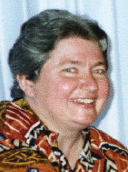

ASSOCIATES (2006, November, v. 13, no. 2) - associates.ucr.edu



Tinker Massey
Embry-Riddle Aeronautical University
Mary.Massey@erau.edu
In a rut? Confused about new routines? Get in the groove! Go to a workshop or conference! There are many times when you find yourself less able to control your workflow, or know about new techniques, or learn something that will help you in the future, or have a contact to query. Conferences and workshops are ideal places to fill in those blanks and get the information you need to do your job.
Workshops are designed to help with specific procedures or train a new skill. They may cover any number of things, such as: Microsoft Office training, coping with stress, dealing with difficult patrons, HTML, and other interesting topics. Most consortia, universities, institutions, and companies arrange to offer these training sessions so that their workers can learn new skills and be ready to move to other jobs or grow with their present ones. I have been to many of these sessions and have learned a great deal. They have helped me develop new techniques to improve my job and sometimes cross train for other work. In libraries, I have found that continually learning new tasks always makes me available for promotions, job changes and new situations or combinations of tasks that improve the interest I have in the jobs assigned. I look back at years of training in serials and monographic cataloging, with refreshers from Solinet and CONSER that prepared me for a job that split my time between Special Collections and Documents. That was a chance in a lifetime to be able to contribute to two areas at the same time and hone my skills even better. It also saved me from being fired because my original job was being changed to a far less demanding and less technical job which would have kept me from developing my skills.
Conferences are quite different, but retain some of the same unique qualities as workshops. Some of the sessions are for teaching, but most are for sharing the problems of work with some solutions that allow us the ability to see things from different perspectives. They may work for you in your venue or they may not, but the situations are presented and you can judge for yourself. The speakers will sometimes listen to your problems and help you find pieces of their work that will help. We learn to deal with changes in our library environments by using various parts of former solutions to mold a new compromise solution that will work. These sessions help us find the new ways or techniques through discussion and queries that enhance the sessions. Conferences give us a chance to meet many new colleagues who might be able to help us one day in another circumstance. I always collect business cards and at the end of the day, I write on the back of each a short description or list of subjects that person is interested in or expert in. You can even purchase a business card container that allows space for those notations. Sometimes I just make notes on the program or in the directory supplied by the conference. The conferences we constructed at the University of Florida in the 80ís supplied a booklet for the program, a booklet for all the specialized information we were not covering at the conference but knew was important (such as time management, dealing with difficult patrons, safety in the workplace, etc.), and last, we supplied a regular alphabetical directory with sections that were geographically ordered, institutionally ordered, and subject area/job ordered. We couldnít make it any easier. Pull out the directory and keep it by your side for quick reference to people who could answer your questions quickly. Now I attend meetings of 800 or more people and I donít get lost. I get tired, but not lost. There are way too many people to meet and stuff to learn to be bored. I usually try to couple with someone who is attending for the first time so I can share some of my tips and help them feel more at home. Most conferences are organized the same way for convenience of operation and skill building in a fast paced and crowded atmosphere. I dare say that when you attend a conference, you will return geared up and ready to go/change/do many more activities than when you left. The enthusiasm and motivation are awesome. I believe it is like being plugged into a light socket Ė the energy surge is tremendous! Be sure that when you return to your own environment, you share your experiences and knowledge with others around you. In many places, your institution will ask you to either present a short report orally to the home crew, or write a short paper on what you saw and did and learned during that trip. If they donít require you to do this, perhaps you should ask to do it, so that your enthusiasm will be communicated to others.
For me, there have been many changes from information I have brought back or at least open discussions about the knowledge. I have enabled others to get motivated about investigating conferences and workshops and I have not stopped that activity just because I completed another degree. Knowledge and building knowledge are so vitally important to our individual growth and our libraryís survival in this technologically changing world. The more we learn and the more we share that learning, the greater our libraries will become. If there is one investment in our future that is vital, it is us and our development. With the knowledge, learning, growing, and compromising solutions of our everyday work lives, we set our goals higher and higher and cause the libraries to keep pace with new and remarkable enhancements that benefit all the patrons and communities we serve. Get vested in the future!